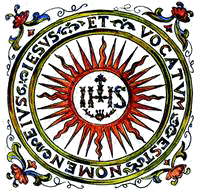When the Holy Father says that abortion is objectively wicked, for instance, it's a truth for all time: Two hundred years from now, there's not going to be a pope who says, "Wow, we were wrong about that whole infanticide thing. Whoops. Go ahead and use your right to choose, ladies." Similarly, when Pius XII declared ex cathedra (from the chair of St. Peter, thus exercising his Petrine charism) that Mary was assumed bodily into Heaven, he was establishing another truth for all time: No pope of the future is going to say he was wrong. In these areas of faith and morals, the Holy Spirit protects the pope from error.
What infallibility does not mean is that the pope's private opinions are unquestionable. Pope Benedict XVI loves Mozart; but every good Catholic is perfectly free to loathe Mozart and insist that Britney Spears is the summit of musical expression. Said Catholic would have to be rather thick in the head, but even so. Similarly, it's well known that Pope Benedict takes St. Augustine as his theological master; he wrote in his memoirs that he found the scholastic theology of St. Thomas Aquinas too ready-made and calculated, notwithstanding his great respect for Thomas and his thought. Nevertheless, there are many, many Catholic thinkers who consider Aquinas superior to Augustine.
These fine disctinctions are somewhat difficult for non-Catholics to grasp and almost impossible for my collegues in the media to wrap their heads around. Thus, we get articles like this:
Pope questions his infallibility
By Malcolm Moore in Rome
The Pope has shocked theologians and opened a chink in the theory of papal infallibility by saying that people should feel free to disagree with what he has written in his latest book, a meditation on Jesus Christ...
... In the foreword, he states that the book is "absolutely not" a work of Catholic doctrine, but rather the "expression of my personal research". He adds: "Consequently, everyone is free to contradict me. I only ask the readers that they read with sympathy, without which there will be no comprehension."
No Pope has ever opened up his work and opinions to criticism before. Nor has any Pope tried to separate his personal and public personas, according to Professor Giuseppe Alberigo, a professor of the history of the Catholic Church at Bologna University.
"I really believe this is the first time this has ever happened," he said. "It is an extraordinarily important gesture. What it means is that the Pope is not totally infallible...
Full article.
Really? Not TOTALLY infallible? Police! Firemen! I am experiencing a terrible bout of cognitive dissonance! Help!
Soooo, apparently the bar for doctorates in Italy isn't quite that high... ;) Seriously, though, the "opening a chink in the theory of papal infallibility" line is what gets me. The headline - "Pope questions his infallibility" - is not Mr. Moore's fault. It's most likely the copy editor's. But the stuff in the body of the piece is on his turf. He needs to either go back to J school or go back to a good basic catechism class.
Hat tip to the American Papist.




















No comments:
Post a Comment